Their first jobs
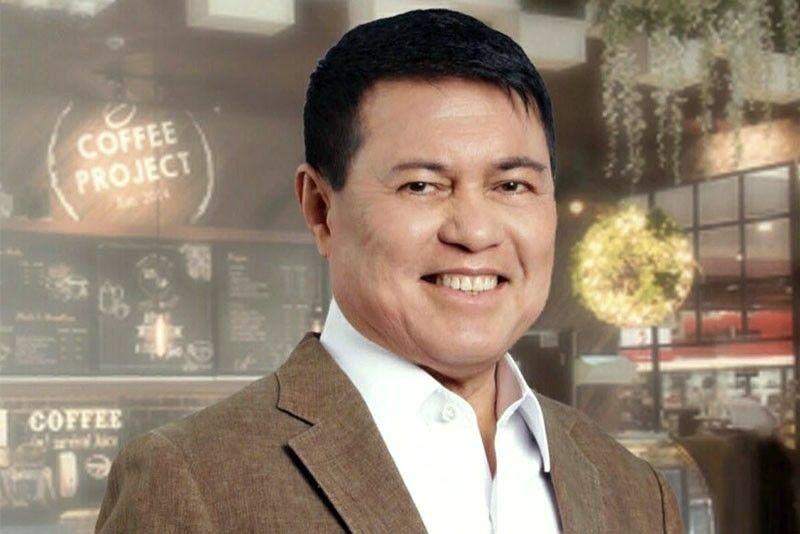
John Gokongwei was selling peanuts to his classmates, Josephine Gotianun Yap was sticking stamps to letter envelopes and Hans Sy was emptying trash cans at SM Makati.
Hong Kong’s richest billionaire Li Ka Shing was 15 when he worked at a factory producing plastic watch bands for 16 hours a day. Malaysia’s No. 1 tycoon and Shangri-La hotel chain founder Robert Kuok Hock Nien started work as an office boy while still in college. China’s Alibaba.com billionaire Jack Ma first worked as a teacher.
The world’s No. 1 wealthiest billionaire Jeff Bezos was 16 when his first job was flipping burgers at McDonald’s in Miami City, while world’s No. 2 wealthiest Bill Gates’ first job was as a computer programmer in senior year in high school. The world’s No. 3 richest billionaire Warren Buffett was 13 when became a newspaper delivery boy.
What were the first jobs of the Philippines’ top business leaders, their unforgettable experiences and lessons? Here are some exclusive interviews.
Manuel B. Villar JR., founder and chairman of Vista Land & Lifescapes, Inc.
Tondo-born Manny Villar started working at only age six up to his teens and college years, assisting his mother Curita “Curing” Bamba Villar in selling shrimp and fish at the Divisoria Public Market. Apart from being inspired by his mother’s hard work, Villar also saw in Divisoria how persevering ethnic Chinese traders did brisk and big-volume trading. Years later, in 1970, after graduating with a business administration degree from University of the Philippines (UP), his first job was as accountant at the country’s biggest accounting firm SGV & Co. He would eventually go into business.
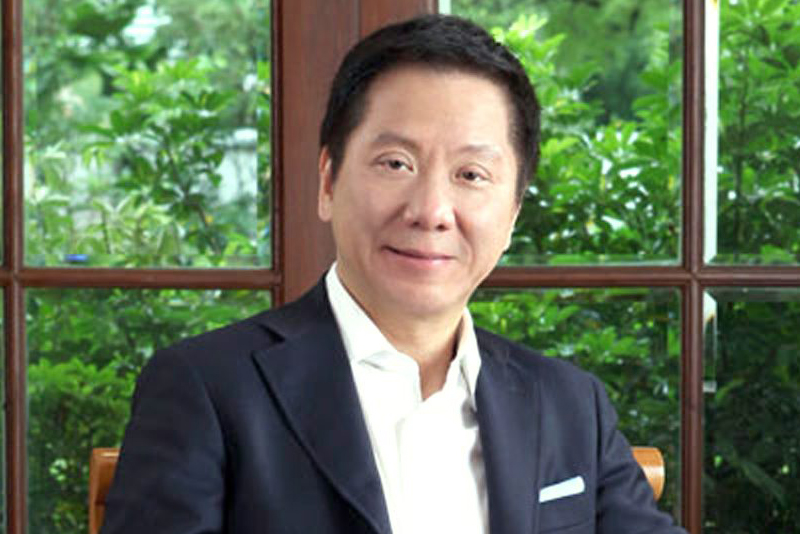
Andrew L. Tan, founder of Alliance Global Group, Megaworld and Emperador
“I was 21 years old when I had my first job. I started as a part-time office assistant in Leonardo Ty’s group of companies. Back then, I earned a minimum wage. I worked very hard, often long hours every day, including the weekends. I was fortunate that my boss recognized my hard work — I received a raise and a promotion after my graduation a year later. The most unforgettable lesson I learned from that time in my life was that the more I worked, the more I learned. The experience I gained from my work was valuable and it serves me well to this day.
“I remember this one instance in my career that had an impact on me. Our company formed a new subsidiary with Hitachi Japan as partner. Hitachi invested 40 percent into our new venture of producing TVs and refrigerators. The No.1 executive in this subsidiary company, the president, was Filipino. Meanwhile, the No.2 executive, the executive vice president, was Japanese. His name was Mr. Oguma. I was in charge of procuring furniture for their new office. I bought the Filipino president a big executive desk with a nice carved design on the wood. I also got Mr. Oguma a big desk. When he saw it, he got very, very nervous, and told me, ‘This cannot be.’ He said that his superior in Japan used a very small table, and he felt that it was not proper for him to have a table that was bigger. I had to change Mr. Oguma’s table to a smaller one. Up to this day, I remember this kind of utmost respect for seniority in the organization. This is a lesson I always remind my children—it is important for them to respect their elders and those who are senior to them.”
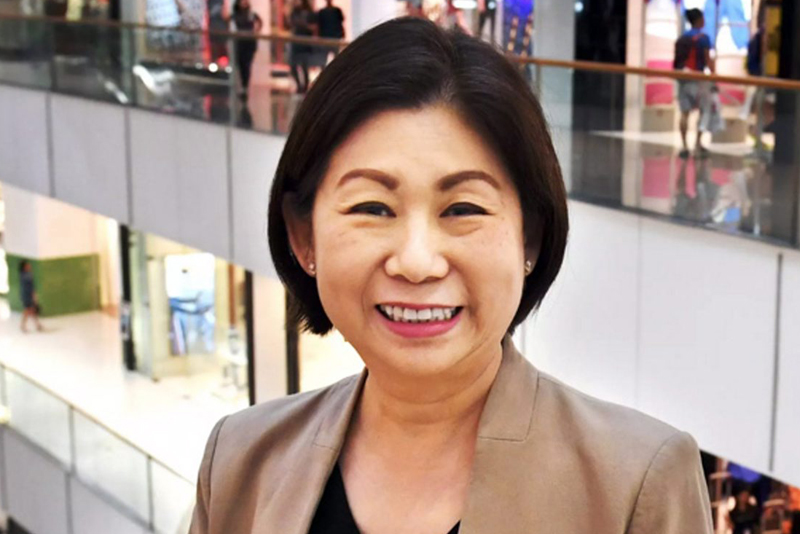
Tessie Sy Coson, vice-chairman, SM Investments Corp.
“I worked as cashier every Saturday at SM Makati when I was a college student. SM was just a family business then, and it was more of a family duty and training for us. I got an allowance for each working day. Did I enjoy it? Of course I did! I am still with SM!”
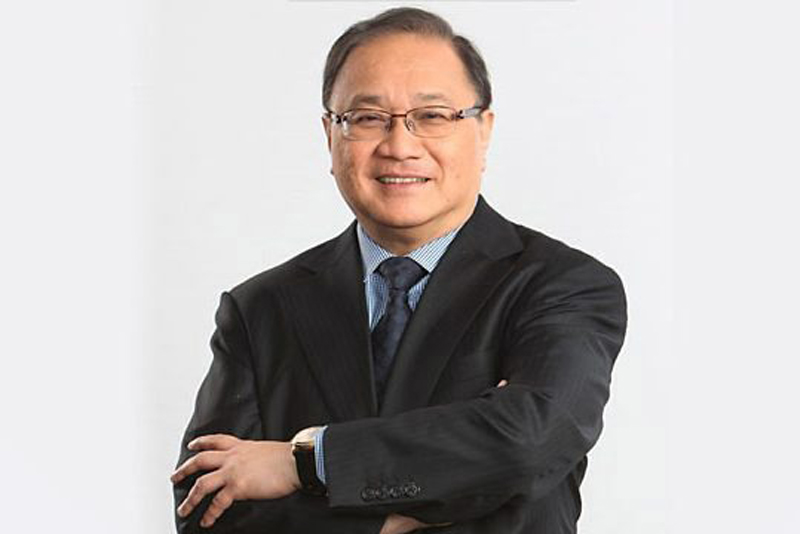
Manny V. Pangilinan, CEO of First Pacific Group, PLDT, Smart and Meralco
“I joined PHINMA in 1970… I actually joined the PHINMA Group as executive assistant to the president of Filoil Marketing’s Titong Chuidian. One of the earlier tasks Titong asked me to do — I was still very young then — was to recommend an increase in the petty cash fund that he himself would approve. Wanting to showboat my newly-minted Wharton degree, I studiously looked into this, and submitted a six-page memo full of numbers and statistical analysis. Titong called me to his office and with my memo on hand, casually said — ‘Let’s just raise this from 2,000 to 5,000 pesos a month.’ So Lesson No. 1 — Keep it short and simple.”
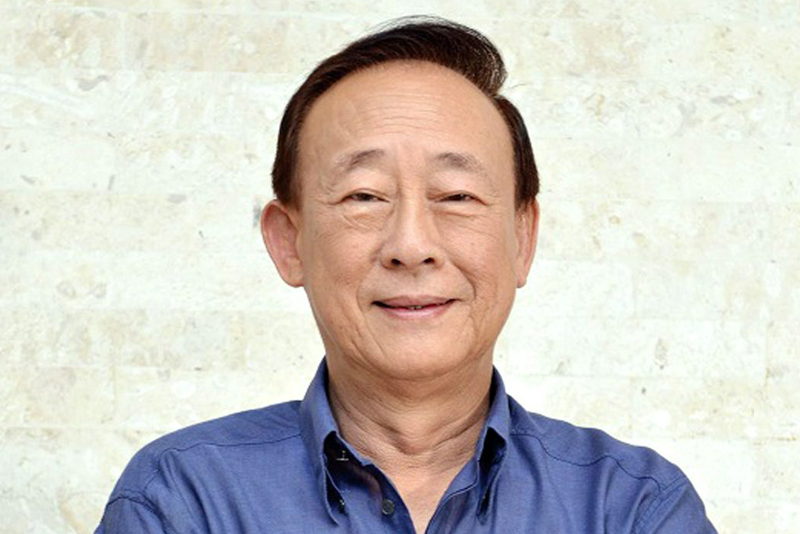
George Yang, founder of McDonald’s Philippines
“My first job was in 1965, after I graduated with an MBA degree from Wharton, University of Pennsylvania. Many of my classmates went to work for SGV or Citibank type of companies, but I wanted to someday become an entrepreneur and didn’t want to work within a corporate structure. I wanted to work for a company where decision-making wasn’t textbook-like. My former classmate Tomas Tan, son of Tan Chi, introduced me to his uncle So Lee Kuy, the boss of what was then the country’s No. 1 manufacturer of native-style cigarettes, Bataan Cigar & Cigarette Factory.
“Mr. So offered me a salary of P1,000 a month and a Toyota Crown car. I helped reorganize their marketing in the two years that I worked there. Mr. So Lee Kuy was a very, very good man, kind and very humble. Another former employee of Bataan Cigar, Lucio Tan, would often still visit his former employer and colleagues in the canteen. I personally often saw Lucio Tan going there even though he was then already doing his own business.”
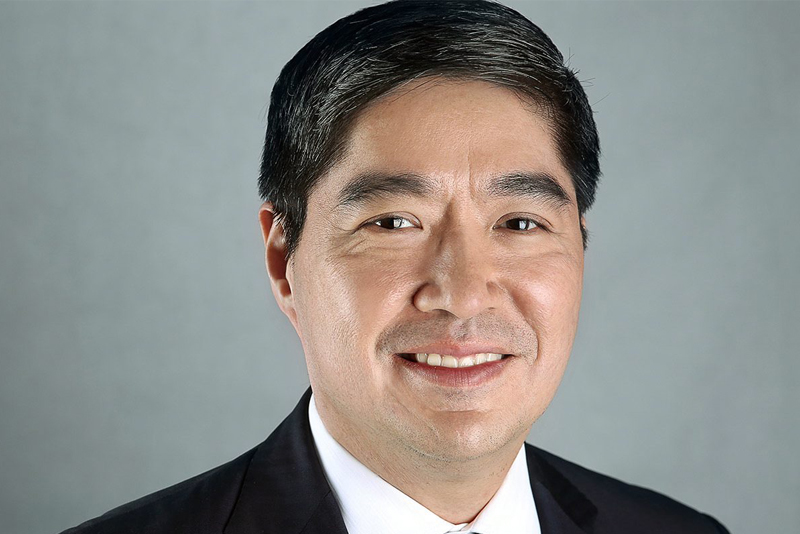
Lance Y. Gokongwei, Chief executive officer of JG Summit Holdings Inc. and Cebu Pacific Air
“Summer job at University of Pennsylvania between junior and senior year, 1987. I worked with a professor in studying mortgages. I got course credit, then got paid about US$2,000 a month, which was enough to pay for my summer housing. Most memorable experience was hanging out with Thai friends who were much better cooks than me. They are still dear friends more than three decades after.”
On another occasion, Lance said: “Our parents never gave us cash for Christmas or our birthdays. There was no ang-pao (red envelope) to look forward to every Chinese New Year. For them, it was honorable to work. If you don’t work, you don’t eat.”
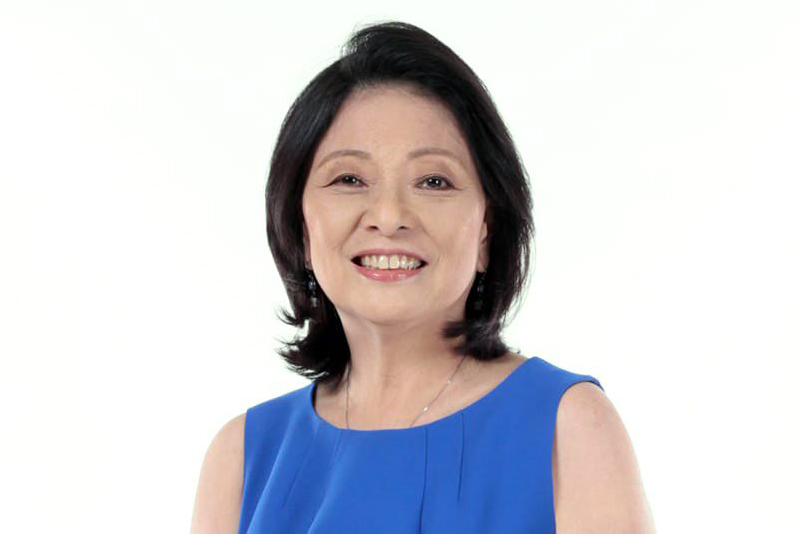
Yvonne S. Yuchengco, vice-chairman of Malayan Insurance Co. Inc.
“Right after college, perhaps at age 20 or 21, I worked at Industrial Finance Corp. (IFC). My salary was P750 per month. I would take public transportation to work as I didn’t own a car. I made ‘friends’ with the rank and file only to find out they were union members and organizing a strike vs. the company.”
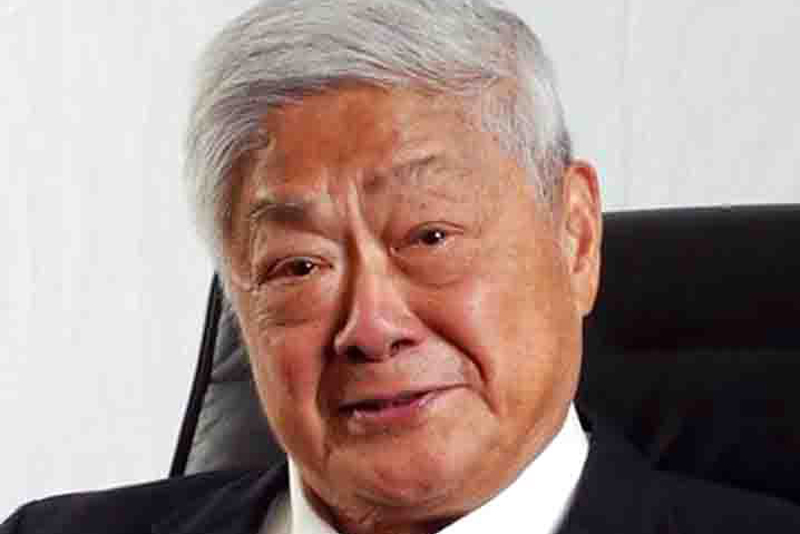
John L. Gokongwei, JR., founder of JG Summit Holdings, Inc. and Gokongwei Brothers Foundation
After his father died when he was only 13 years, Gokongwei had to work to help his family. He recounted that he started selling roasted peanuts to his classmates in Cebu; later he sold soap, thread and candles in the town market, and eventually traded goods between Cebu and Manila. The pioneer industrialist and his wife Elizabeth Yu Gokongwei have both inculcated their work ethic and values to their six children.
The Gokongwei daughters Lisa, Faith and Hope worked in a hot warehouse, stamping prices on canned goods. Marcia worked as a kitchen assistant at their former Manila Midtown Hotel (now Robinsons Malate), scooping ice cream and making waffle cones. The two eldest children Robina and Lance were no different.
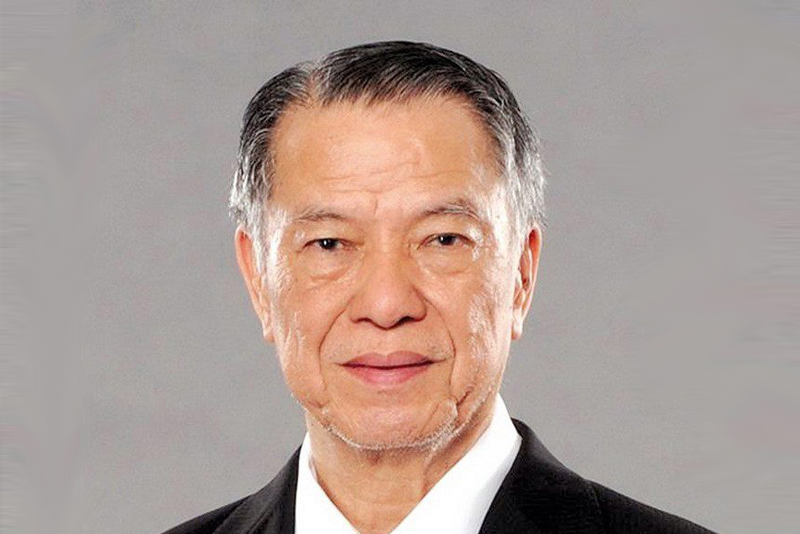
Lucio C. Tan, founder of LT Group Inc., chairman of Philippine Airlines
“When I was young, I got tuition money every year from my paternal grandfather’s brother Tan Chi. But when I was in high school, I was already embarrassed to directly ask for tuition money and I one day did it in a roundabout way by telling my grand-uncle that I wanted to work part-time. Hearing this, my grand-uncle brought me to Bataan Cigar & Cigarette Factory, whose boss was another grand-uncle, So Lee Kuy (Mr. So’s wife was my paternal grandfather’s sister).
“For this first job at Bataan Cigar as a working student, my grand-uncle So Lee Kuy gave me P50 a month and the balance of my salary was given to my father who also worked there because Mr. So said he didn’t want me to use up all my earnings, but he didn’t know that I was so frugal, I always managed to have savings every month even from the P50 that he paid me.”
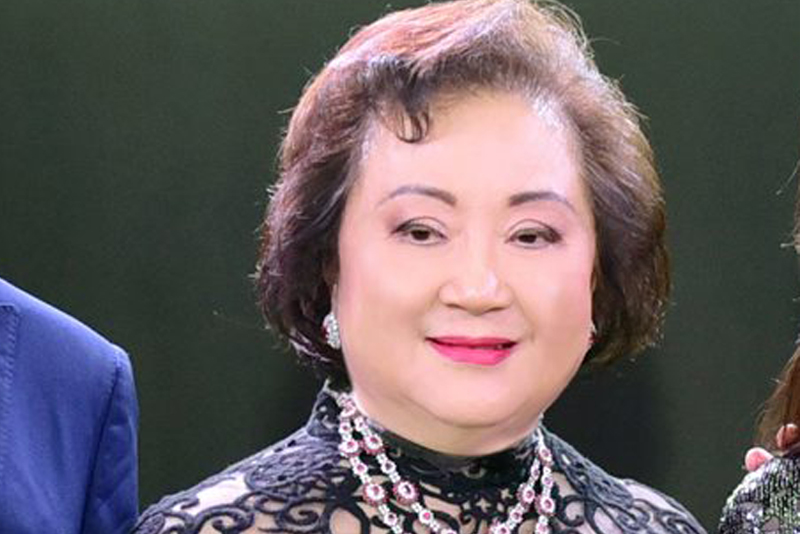
Zenaida ‘Nedy’ Tantoco, chairman and CEO of Rustan’s
“As we were growing up during grade school and high school, my mom (the late Rustan’s founder Gliceria “Glecy” Tantoco) would expose us to retail by giving us assignments in the original store on San Marcelino St. We would be in the claim counter and assist customers in finding their packages. As we became older, we were trained how to gift-wrap properly. We would also assist customers, our titas (aunts), through the store. My parents rewarded us during the summer months by bringing us in pairs with them during their trips to Europe and New York.
“I must say I personally enjoyed doing this and knowing we were Mommy’s little helpers. Even bringing us during their buying trips combined business with pleasure and as part of our on-the-job training.”
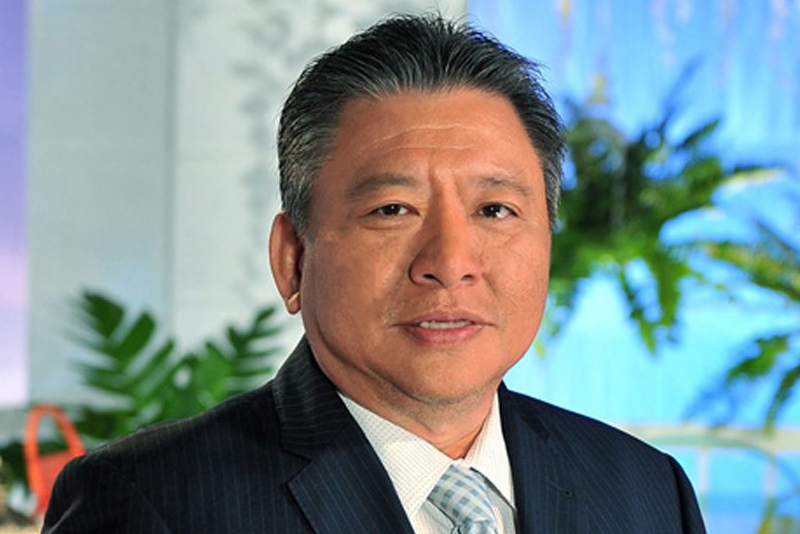
Samuel ‘Sammy’ Po, owner of Marco Polo Hotel Ortigas and manufacturer of EQ diapers
“I was about five or six years old when I started working for the bazaar started by my late grandfather, La Vertud, located in Jose Maria Basa St. in Iloilo City. On weekends or holidays and after school, my siblings and I assisted as all-around storekeepers selling cosmetics, perfumes, toilet paper, shampoos, soaps, etc. The only pay I received was a commission of 25 centavos for every piece of luggage sold.”
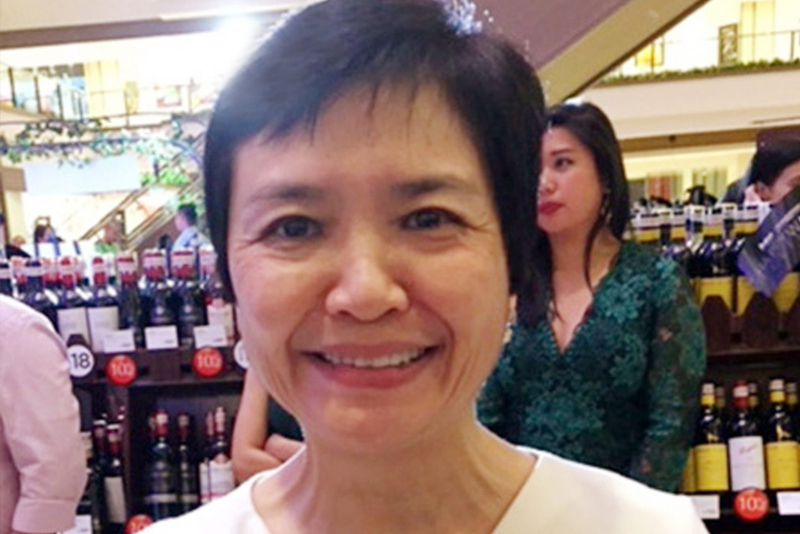
Robina Gokongwei-Pe, president and CEO of Robinsons Retail Holdings Inc.
“My position was management trainee and I started as a receiving clerk at the bodega of Robinsons Departmemt Store in Ermita, Manila. That was in 1994 and my salary was P1,500 per month. My most unforgettable experience? I got caught in the freight elevator by myself during a brownout. After an hour and the lights hadn’t returned, I had to climb out of the elevator in between floors.”
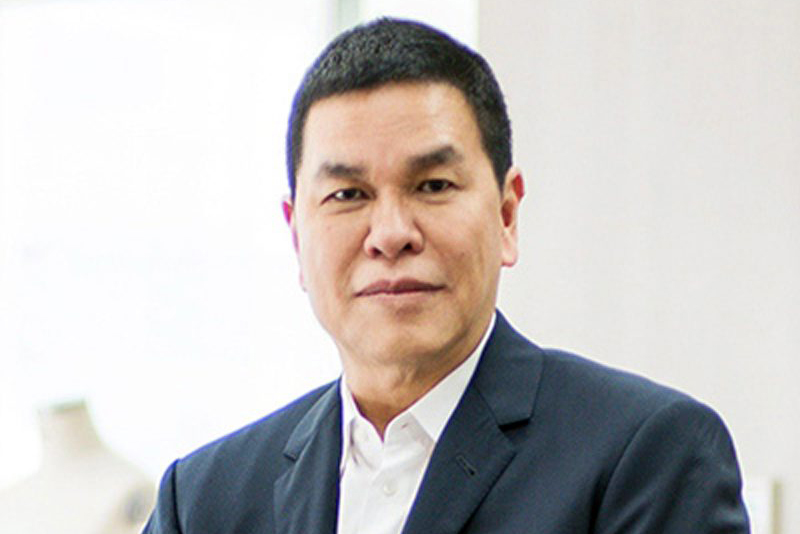
Ben Chan, chairman of Suyen Corp., founder and creative executive director of Bench
“I worked in San Francisco, where I was manning the drive-in theater tickets and sometimes the food and snack bar to moviegoers. I think I was getting like US$2.25 or $2.35 per hour. I was taking loads of summer jobs then to while away my hours in between school break at Rudolph Shaeffer School of Design.”
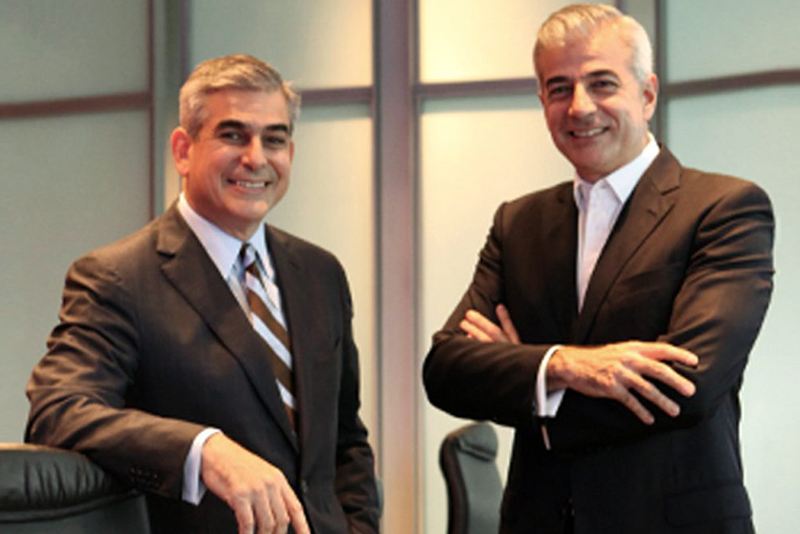
The Zobel brothers: Fernando (right) and Jaime (left)
Fernando Zobel, president, vice chairman and chief operating officer of Ayala Corporation
“Both Jaime and I had our first jobs at the Lapanday plantation in Davao. Jaime was 15 and I was 14. We worked in the banana plantation and in the rice fields for a month. No pay but we got a place to sleep and eat food. Work started at sunrise to avoid the intense heat and ended at about 3 p.m.”
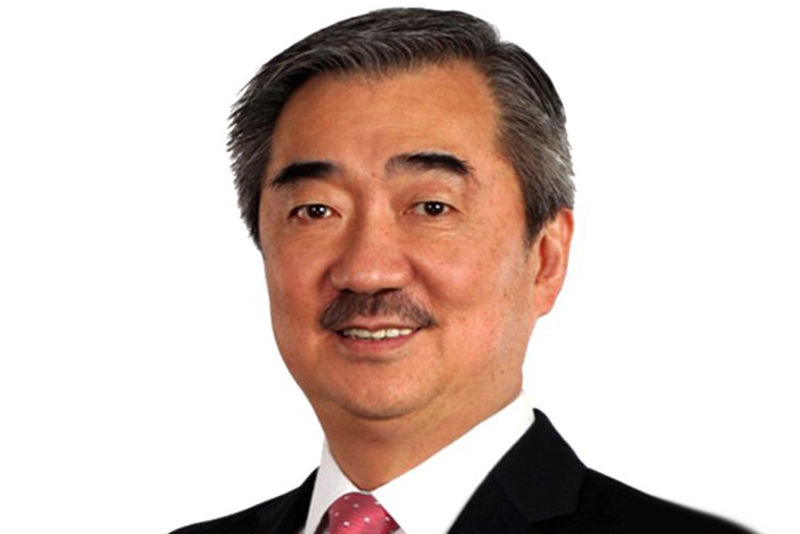
Hans T. Sy, chairman of Executive Committee of SM Prime Holdings Inc.
“When I turned 13, my dad Henry Sy Sr. asked me to go to the department store in Makati on Saturdays to understand and get a feel of the business. Eager and excited, I wore a new shirt to my first Saturday job. I was taken aback as the first thing he asked me to do was to empty the trash cans. For the rest of the day and many Saturdays after, I was asked to be a cash clerk, bringing all cash or credit transactions to the central cash counter to have the items transacted and wrapped.
“I was then assigned to be an inventory clerk, then a sales clerk. Interacting with customers gave me a better understanding of the diverse public. Working with my peers gave me an insight into our employees’ outlooks and the difficulties encountered in their jobs.
“There was no special treatment from my dad. No allowances or salary bcause it was a weekend task. Though all the jobs were quite routine and humdrum, I learned to harness the virtue of patience, to train myself to focus on achievable goals and, most important, it reminds me to stay grounded.”
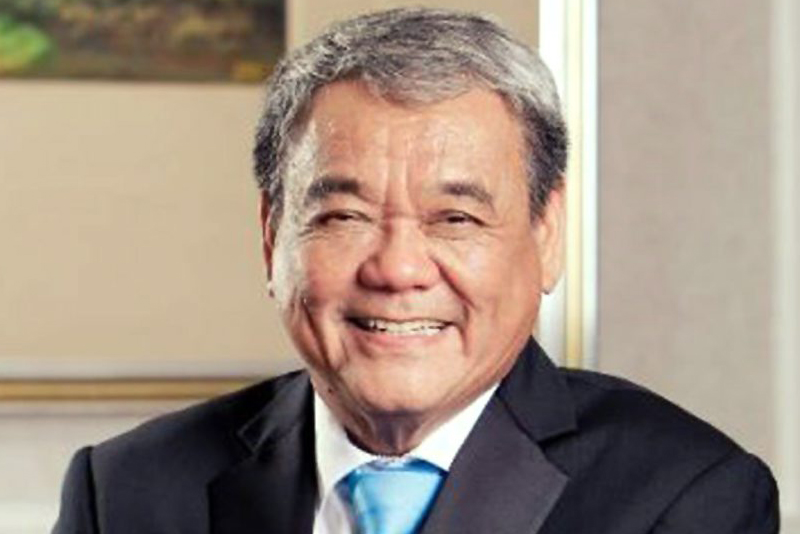
Isidro ‘Sid’ A. Consunji, chairman and president of DMCI Holdings Inc.
“I started to work when I was 18 years old. I was disinterested in studying so I decided to quit school and work in our motor pool in Paco, Manila. I chose motor pool because at the time, I had no other skill except to tinker with things.
“Nung bata ako, nagbubutingting ako ng bisikleta. To me, halos pare-pareho lang ang bisikleta, truck at bulldozer. Umaandar lahat ‘yan (As a kid, I used to tinker around with the bicycle. To me, it was all the same, the bicycle, truck and bulldozer)! Taga-check ako ng mga truck at equipment na sira (I was tasked to check on trucks and equipment which weren’t working). I also followed up on missing spare parts to get our trucks and equipment up and running.
“I worked in the motor pool for six or seven months. I was paid minimum wage, which was P6 a day. I got paid lunchtime every Saturday and by Tuesday night, none would be left! (laughs)
“I realized na mahirap pala magtrabaho ‘pag mababa ang suweldo (it was hard to work if the salary was low). I couldn’t live on minimum wage, so I decided to go back to school and get my degree (BS Engineering, UP). I also learned about operations. I observed how bulldozers were used to build roads. By watching these operations, I learned the capabilities and proper use of heavy equipment. But more important, I learned how to motivate people to optimize operations. Afterwards, we would bond over food and drinks.”
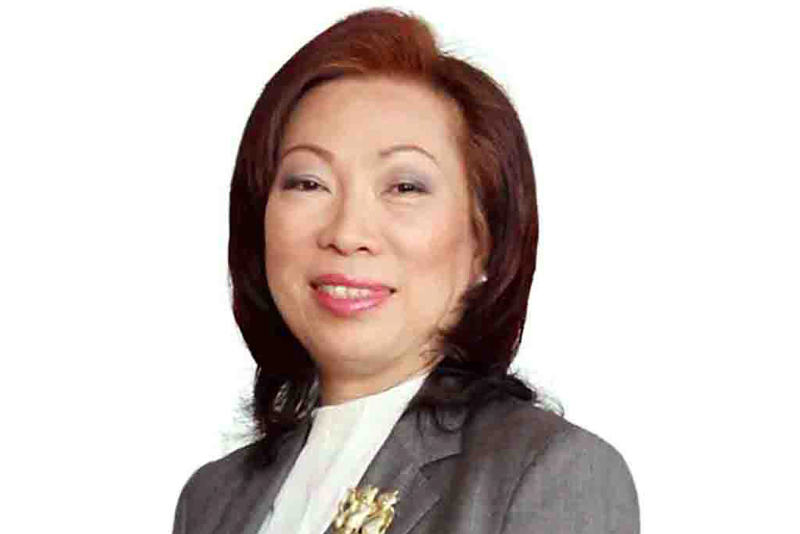
Josephine Gotianun Yap, president and CEO of Filinvest Land Inc. and director of East West Bank
“Summer jobs at the office when I was 8 to 10 years old doing miscellaneous jobs like sticking stamps to letter envelopes, counting coins and wrapping coins in paper rolls, deliver notes from my mom to various staff. Pay was just merienda (snacks). It allowed me to have a positive feeling about the office and grow up in the company of many of the officers. Exposure — observing the work ethics of my parents (Andrew and Mercedes Gotianun) and how they handled meetings and dealt with the team — was invaluable.”
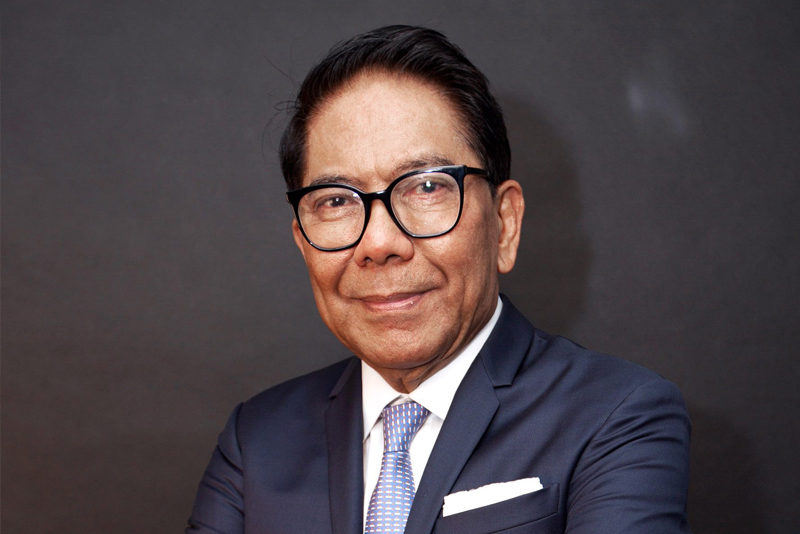
Jose Eduardo ‘Joey’ B. Antonio, founder and chairman of Century Properties Group
“My first informal employment was when I was 16 years old for one summer at Bank of the PI (now Bank of Philippine Islands). For an allowance of P200 a month, I was tasked to deliver quedans or warehouse receipts used as the primary trading document in the sugar industry. At that time, quedans were widely used as loan collateral. I went back and forth with the bank and their clients bringing documents and receipts, making constant follow-ups. I was entrusted this task during my grandfather Ramon Antonio Sr.’s term as the bank’s first Filipino vice president. My first formal job was when I was in my early 20s as a systems analyst at Esso Fertilizer. The company was hiring graduate school students and I was a first-year masteral student. My salary was P2,000 a month.”
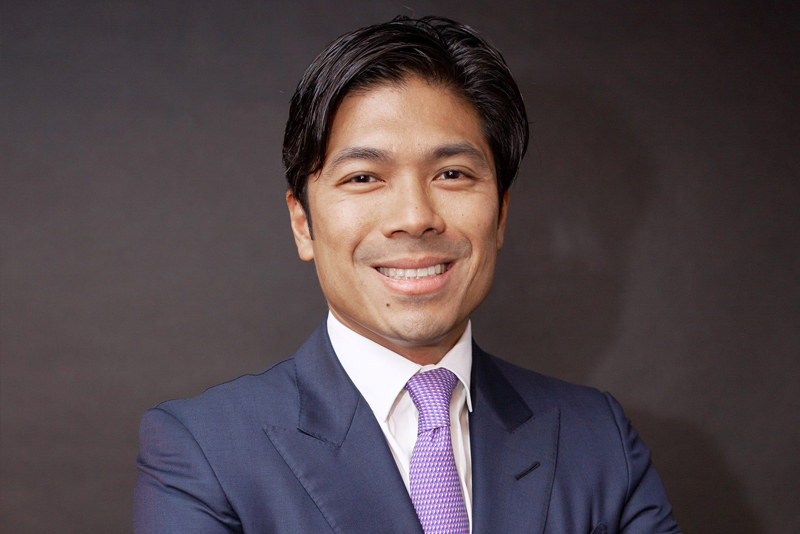
Marco R. Antonio, president and CEO of Century Properties Group
“I was 21 years old when I was first employed by The Blackstone Group in New York City as a financial analyst. I worked there for a year and a half with a salary of $40,000 a year. I was exposed to the world of private equity and learned many lessons on how this form of capital would be able to opportunistically buy real estate assets, create value, and be sold for healthy returns. Working in New York was a crash course in survival of the fittest — long hours, but such a fun learning experience.”
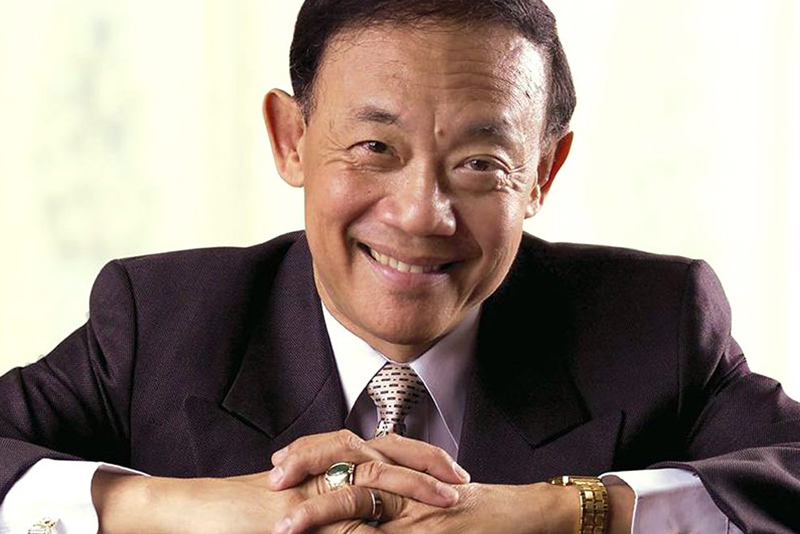
Jose Mari Chan, singer/songwriter, chairman and president of raw sugar manufacturer and refiner BISCOM Inc.
“At 13 years old, I was a Sunday disc jockey on radio station DYHF in Iloilo City for two years, where I had a lot of fans but didn’t get paid a single centavo, but I had a great deal of fun. I was in junior year at the Ateneo de Manila in 1965 when Pete Roa of ABS-CBN came to our house to ask my Papa Tony’s permission to allow me to host a teenage TV musical show on ABS-CBN’s Channel 9.
“My father, seeing the glitter and excitement in my eyes, gave his permission on two conditions: first, that I maintain good grades in Ateneo and second, that I should not be paid a salary by ABS-CBN. I did not see the wisdom of it until years later. You see, It was my Papa’s wish that I would eventually follow in his footsteps as a businessman so he did not want me getting paid and encouraged for doing something I enjoyed, which was singing.
“I quit hosting Nine Teeners after graduation in 1967 and began to work in my father’s Sugar Trading Company in Bacolod City. One unforgettable experience: I went unannounced one day to the office of Mr. Perrine of General Milk to sell sugar. I was gratified when he agreed to buy a small quantity from me. He said he remembered himself as a young graduate trying to sell a set of encyclopedias to this elderly man who bought from him with the kind intention of giving him encouragement.”
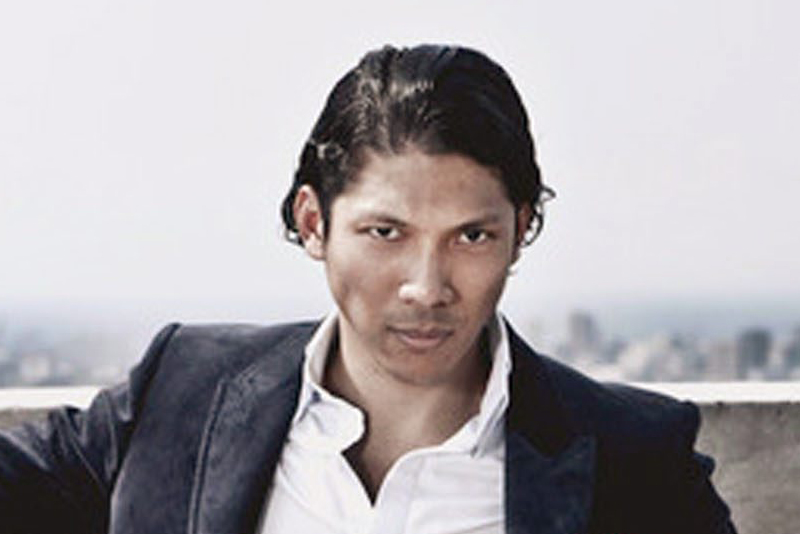
Robbie Antonio, founder and CEO of Resident Holdings
“Right after business school, I put up Antonio Development in Manhattan, New York where I spearheaded the design and construction of the Centurion, the world’s first ground-up condominium by Pei Partnership Architects and the late I.M. Pei who designed the Louvre Pyramid. During my stint there, I learned the value of hard work, dedication and credibility, as well as the importance of believing in your capabilities. The project was completed in 2009 and I immediately went back to the Philippines to assist the family in developing celebrity-designed towers and residential projects in partnership with Trump Organization, Armani Casa, Versace Home, Philippe Starck, Missoni Home, and Paris Hilton.”
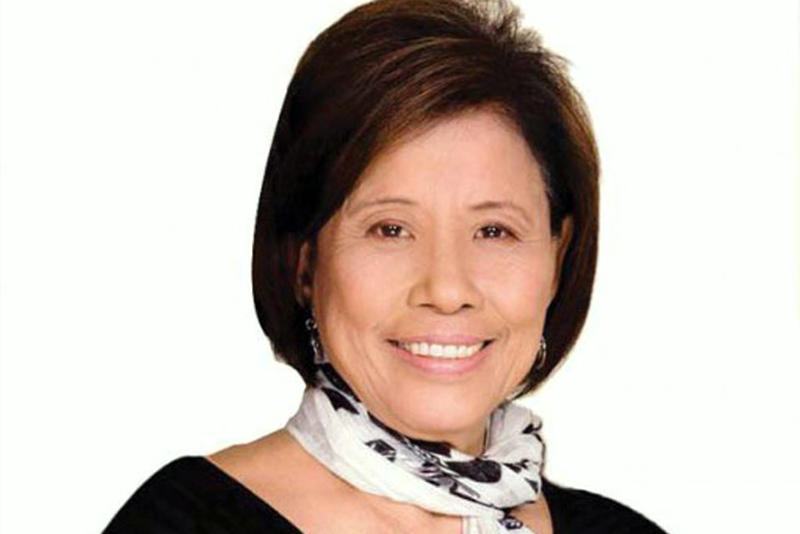
Mother Lily Y. Monteverde, founder of Regal Entertainment and Imperial Palace Suites
“My first job was working for my father-in-law at his Montemart Department Store with a monthly salary of P300. I was the purchasing manager. Due to disagreements with my stepmother-in-law, I got out of the Monteverde family business and started my own small businesses like popcorn machines in Cherry Foodarama in Mandaluyong and at Good Earth Emporium in Manila. I also had an ice cream machine business, and I sold blouses in Zurburan and Central Market.
“From my popcorn machines, I was very happy when I made P100 a day. I bought my first popcorn machine from Mr. Tong for P1,500. From the crisis and struggles I experienced in my first job, I learned perseverance, hard work, self-reliance and never giving up.”
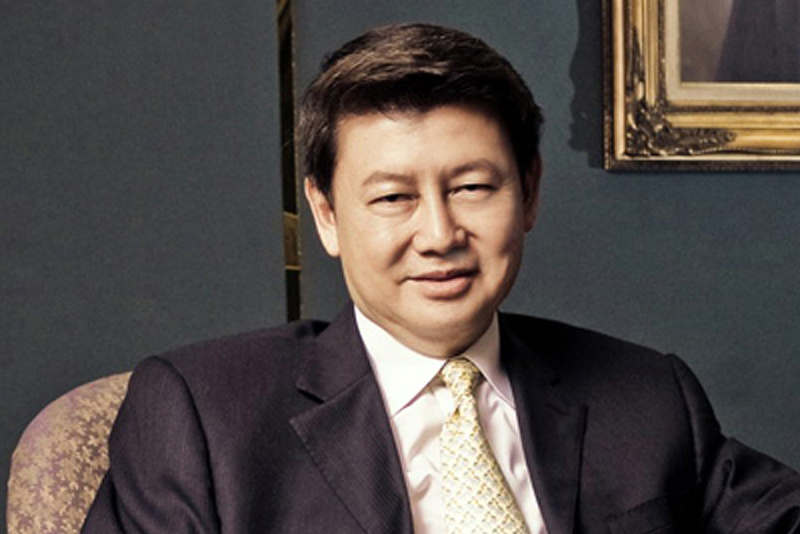
Henry Lim Bon Liong, CEO of Sterling Paper Group and SL Agritech, president of FFCCCII
“I first worked at age 14 doing delivery and invoicing for our modest family business, then called Sterling Paper Product Enterprises Inc., based in Caloocan City. There was no salary or allowance, it was a family obligation to help out if I had no classes. When I was 16 years old, I worked as a part-time salesman.
“My late parents Lim Seh Leng and Maria Maria Co Chiao Ti Lim taught me that the only way for me to achieve my dreams is through hard work and perseverance. My family and I did not have an easy life. We were not poor but we were not rich. My parents and I, along with my three other brothers, lived in a small apartment with no bathroom (we had to go down several flights of stairs to my uncle’s warehouse to use the bathroom). My parents trained me by making me work during my youth.”
* * *
Thanks for your feedback to [email protected]. Follow @wilsonleeflores on Instagram, Twitter, Facebook. Buy PhilSTAR’s Tagalog tabloid “Pilipino STAR Ngayon” every Friday and read my column “Kuwentong Panadero.” Read also https://investment.fwd.com.ph/experts/asia-s-business-leaders-and-what-we-can-learn-from-them















